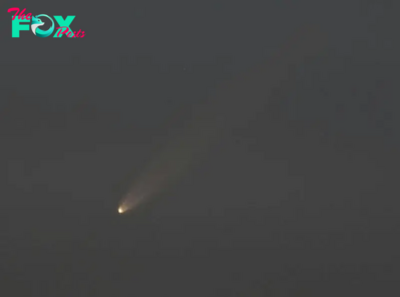Science
SETI searches for alien life in over 1,000 galaxies using unexplored radio frequencies
A search of more than 1,300 galaxies for extraterrestrial signals has helped to constrain expectations as to how many communicating, technological civilizations may exist beyond Earth.
Conducted with the Murchison Widefield Array (MWA) in Australia, the search concerned itself with low radio frequencies in the 80–300 MHz range. For comparison, SETI (which stands for Search for Extraterrestrial Intelligence) typically looks for alien signals in the 1,420 MHz hydrogen emission frequency. In fact, low frequencies are relatively unexplored real estate for SETI.
The search was conducted by Chenoa Tremblay of the SETI Institute in California and Steven Tingay, the director of the MWA from Australia's Curtin University. The team focused on a 30-degree field of view in the constellation of Vela, the Sails, encompassing 2,880 galaxies. The redshifts, and hence distances, to 1,317 of these galaxies have previously been measured with high accuracy — so, Tremblay and Tingay targeted these galaxies in particular. By knowing the galaxies' distances, the duo could place constraints on the power of any transmitters in those galaxies.
While their initial search failed to detect an extraterrestrial signal, Tremblay and Tingay concluded in their paper that they would have been capable of detecting one with a transmitter power of 7 x 10^22 watts at a frequency of 100MHz.
"This work represents a significant step forward in our efforts to detect signals from advanced extraterrestrial civilizations," said Tremblay in a statement. "The large field of view and low-frequency range of the MWA makes it an ideal tool for this kind of research, and the limits we set will guide future studies."
Related: Scientists are searching for alien signals at frequencies never studied before
For much of its 64-year History, SETI has focused on stars in our own Milky Way galaxy — in recent years, however, the net has begun to widen.
-

 Science2d ago
Science2d agoWhy Risky Wildfire Zones Have Been Increasing Around the World
-

 Science2d ago
Science2d agoIt’s Time to Redefine What a Megafire Is in the Climate Change Era
-

 Science3d ago
Science3d ago4 Astronauts Return to Earth After Being Delayed by Boeing’s Capsule Trouble and Hurricane Milton
-

 Science4d ago
Science4d agoThe Elegance and Awkwardness of NASA’s New Moon Suit, Designed by Axiom and Prada
-

 Science1w ago
Science1w agoSpaceX Launches Its Mega Starship Rocket. This Time, Mechanical Arms Catch It at Landing
-

 Science3w ago
Science3w agoYou Won’t Want to Miss October’s Rare Comet Sighting. Here’s How and When You Can See It
-

 Science1m ago
Science1m agoA New Spacecraft Could Help Determine if There’s Life on a Moon of Jupiter
-

 Science1m ago
Science1m agoWe Can Thank Deep-Space Asteroids for Helping Start Life on Earth



























